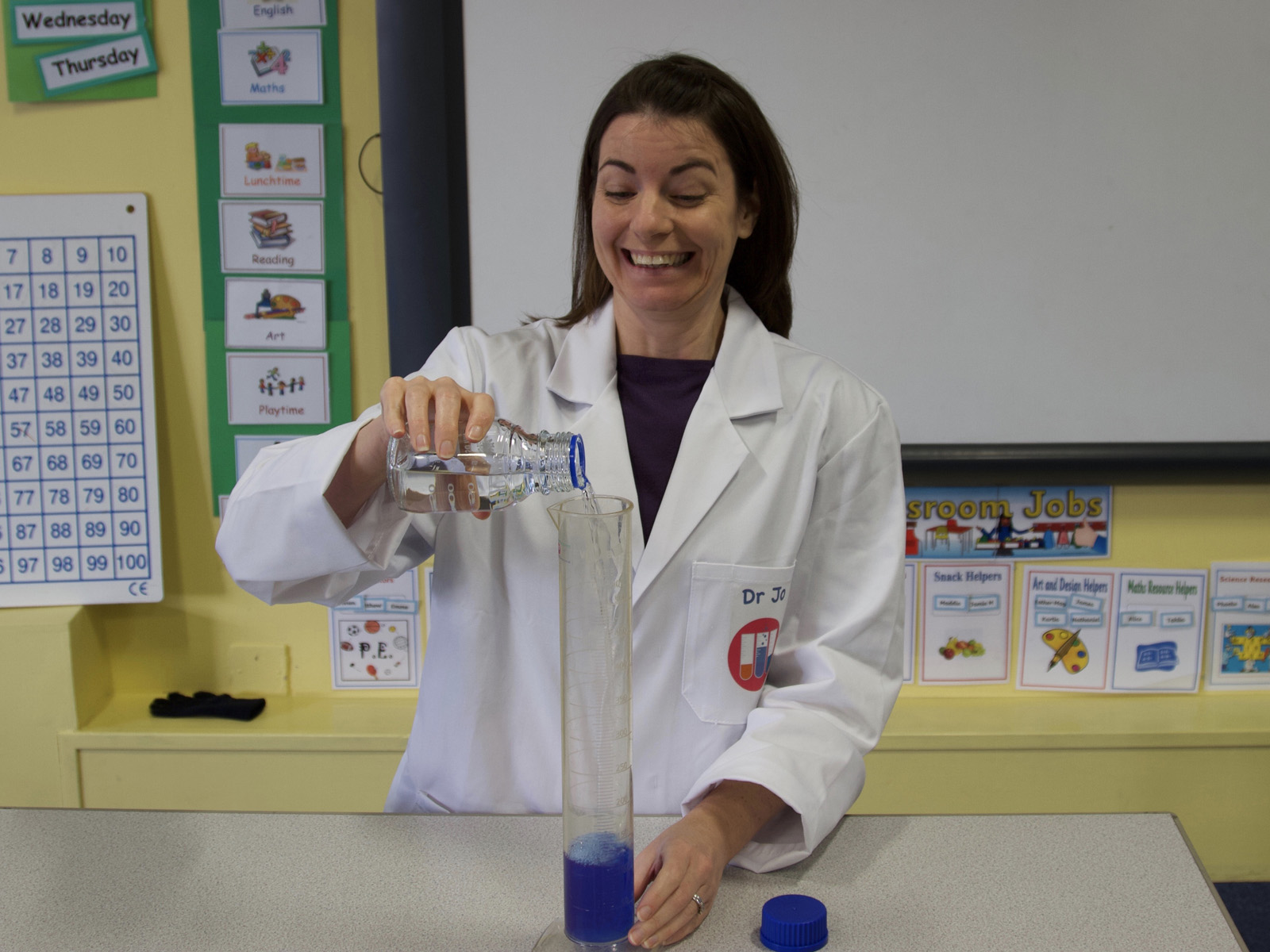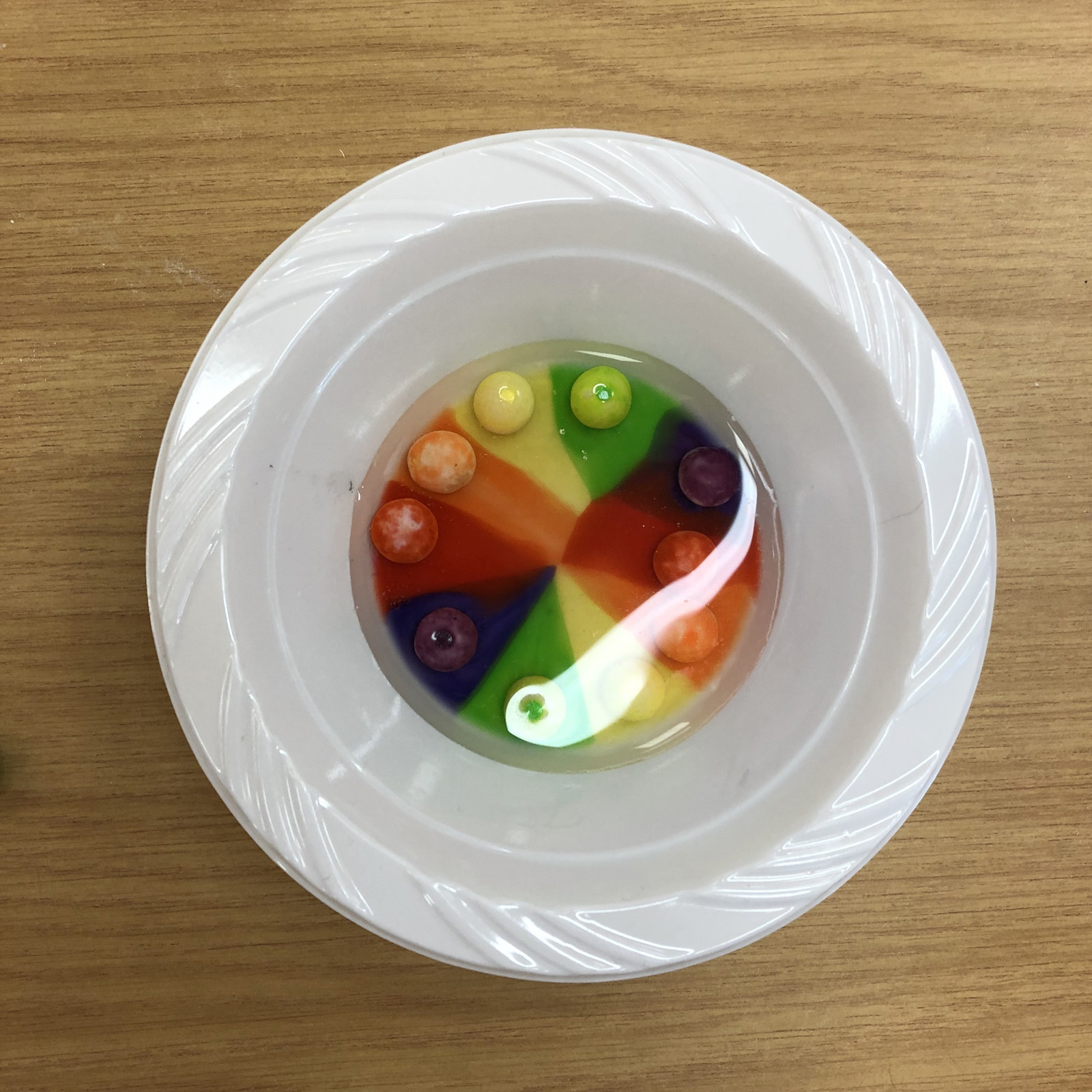Hands-on chemistry for children with special educational needs

Picture: © Dr Jo Science
Jo Montomery led fun practical sessions over half term to engage children with special educational needs and disabilities.
By Jo Montgomery, Dr Jo Science
The project took place over a half term, delivering weekly chemistry investigations for Key stage 2 and 3 children at a school catering for special educational needs, including an autism unit. I tailored fun and engaging, hands-on practical sessions to fit in with topics being studied more widely in classes, including senses, food and properties of materials.
Many enrichment and outreach opportunities are geared towards mainstream schools, meaning that children with Special Educational Needs and Disabilities (SEND) often miss out1. These children tend to prefer to work more practically, which contributes to raising aspirations and inspiring a passion for science2. There may not be specialist science subject teachers, or resources available, in special schools – particularly at primary. The aim of the project was to provide enriching experiences for the children, make links to STEM subjects and careers, and also upskill teachers in subject knowledge and working scientifically through informal professional development.

This project could not have taken place without the generous support of the RSC outreach fund. It not only covered the costs of resources, but also funded expert provision and delivery. As a freelance education consultant, I don’t have a big organisation paying for my time. This project provided experiences and opportunities for children that don't usually exist and also supported teachers to explore different ways of teaching topics.

The project was designed across several weeks so that relationships and interactions with the children could be developed over time. This was a very successful format, as the children came to trust me and look forward to the sessions. Children who were reluctant to join in at the start were keen to take part as we progressed through the half term. Whilst I had planned sequential learning activities building on children’s prior knowledge, I had also factored in lots of flexibility, both to allow for any sensory needs and also to allow the children time and space to lead the learning. Being greeted excitedly and included in the children’s wider learning experiences was a privilege, and being part of children’s discovery, questioning and investigation was a joy.
Pupil and teacher voice surveys before and after the project revealed that teachers improved their subject knowledge, increased confidence teaching science and addressing misconceptions, and children enjoyed the sessions and improved their understanding and use of scientific vocabulary.
I would like to offer enormous thanks to the staff and children at Martin Bacon Academy, especially Michael DeQuidt who was instrumental in the organisation and logistics, and welcoming me into the school community.
Jo was lovely in the classroom. She was understanding of the complex needs of our students and was enthusiastic. As a teacher I feel I learned a lot about delivering science moving forwards. I have a class of 8 students and she managed to engage even our most reluctant learners.
Teacher

This project provides a legacy in terms of informal development for teachers – skills and ideas can be used in subsequent years. These activities and experiences also contribute to the drip-feeding of experiences for these children to help build science capital3.
I have also had the opportunity to tweak and adapt my planning and delivery in a new setting with new audiences, which will help shape future sessions involving children with SEND. It would be wonderful to be able to increase the reach of this project with other classes and schools.
1Kang & Martin (2018) https://doi.org/10.1080/02188791.2018.1505599; Brewer & Bradley (2018) 101 Inclusive and SEN Science and Computing Lessons. Jessica Kingsley Publishers.
2Montgomery, J. (2022) ‘Reimaging the Science Learning Journey 2022, ‘Hands-on practical science in the digital age’ [conference event]. Oxford University Press.
3Archer Ker, L. et. al (2013). ASPIRES Report: Young people’s science and career aspirations, age 10-14. King’s College London, London, UK.